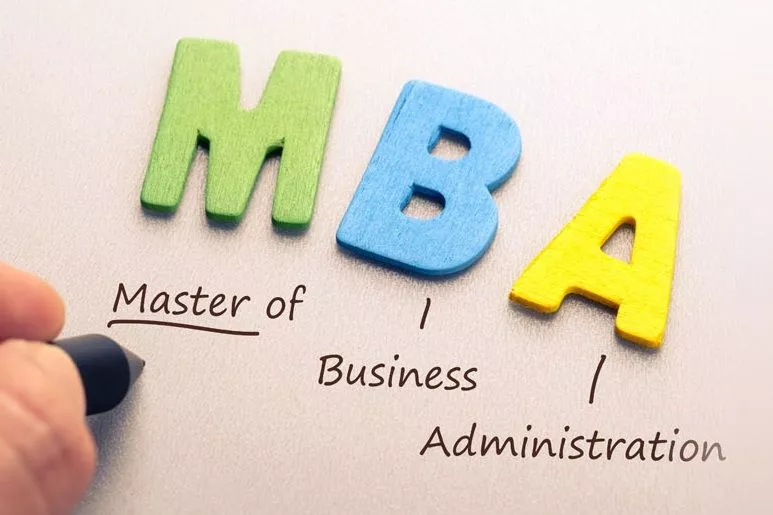Business
2+2 MBA Programs 2023 – 2024 | Deferred MBA Programs

Last Updated on May 18, 2023 by Robert C. Hoopes
Professionals continuously look for ways to improve their skill sets and move up the corporate ladder in today’s fast-paced business environment. The 2+2 MBA program is one option that is gaining popularity. With the help of this ground-breaking educational paradigm, talented individuals can accelerate their professional progression by combining undergraduate and graduate courses.
High-potential applicants who have recently earned their undergraduate degree or are in their final year of studies are targeted by the 2+2 MBA program. It provides a faster route to earning a business administration bachelor’s and master’s degree in a shortened amount of time. How does it function? Here in this article, we are going to provide you with complete information regarding 2+2 MBA Programs.
What is MBA 2+2 Programs?

What exactly is an MBA 2+2 program, then? It is, in basic terms, a postponed admissions program that certain business schools offer that enables candidates to apply for an MBA program during their senior year of undergraduate education. Before officially beginning their MBA programs, accepted students must work for a minimum of two years in a professional role.
The MBA 2+2 program’s structure has many advantages for students. First off, it offers a quick route to the highly valued MBA degree. Early admission to a top business school allows students to concentrate on developing their talents and acquiring relevant job experience while knowing that their place in the MBA program is guaranteed.
Additionally, the program enables students to close the gap between the corporate sector and academia. They have a deeper awareness of company dynamics, decision-making techniques, and industry insights thanks to the practical experience they received over the two-year employment period. By bringing this real-world experience to their MBA studies, students enrich class discussions and add to a more complete learning environment.
The MBA 2+2 program’s potential to improve professional chances is another benefit. When applying to the MBA program, students frequently have an advantage if they successfully fulfill the two-year employment requirement. They may make better judgments and explore specialized business areas by employing their professional knowledge, growing their network, and better understanding their goals in life.
Additionally, the program promotes inclusiveness and diversity among MBA cohorts. MBA 2+2 programs strive to draw a larger pool of applicants from a variety of academic backgrounds by focusing on undergraduate students. This diversity encourages a dynamic and cooperative learning environment where students can benefit from one another’s unique experiences and viewpoints.
It is important to note that MBA 2+2 programs have their share of difficulties. Due to the shortage of spaces, entry to these programs can be quite competitive. Students must have outstanding academic achievement, leadership potential, and a distinct professional goal. Students must also navigate the job market during their two years of employment in order to find positions that fit their aims and aspirations.
Numerous famous management schools have adopted the MBA 2+2 idea recently, realizing its potential to draw top candidates and develop future leaders. These programs have seen success stories of former students who have gone on to make noteworthy contributions to their respective professions and take on leadership roles in well-known organizations.
Benefits of 2+2 MBA Programs
A 2+2 MBA program’s ability to provide a seamless transition from undergraduate to graduate study is one of its main advantages. Undergraduates can avoid the nervousness and unpredictability of the MBA application process by securing their place in a top business school during their junior year. This enables students to efficiently organize their academic path and concentrate on gaining worthwhile job experience just before starting their MBA education. A 2+2 MBA program has the following major benefits:
- Flexibility and Exploration: Before deciding on a particular career route, students can explore a variety of academic and professional choices thanks to the flexibility offered by 2+2 MBA programs. Students can take a wide variety of classes, take part in internships, and participate in extracurricular activities by first earning their undergraduate degree. They gain a well-rounded skill set from this broad exposure, which also enables them to make wise choices about their future areas of business specialization.
- Increasing job Experience: Candidates for the traditional MBA route often apply to business school after gaining some job experience. But before beginning their MBA studies, the 2+2 program enables students to get useful professional experience. Individuals can develop practical skills, build networks of professionals, and apply theoretical knowledge to actual business situations throughout this extended time of employment. As a result, they have a strong foundation of real-world experience when they start their MBA program, which improves their entire learning process.
- Networking Possibilities: 2+2 MBA programs frequently promote several networking possibilities. Students have the opportunity to network with students, educators, and business leaders during their undergraduate years, developing important connections that will help them in their future jobs. They also receive access to a sizable school network made up of both MBA and undergraduate grads. These relationships provide beneficial career opportunities, mentorship, and partnerships that may have a big impact on their future performance in the corporate world.
- Enhanced Career Advancement: Students who enroll in a 2+2 MBA program have a clear edge while looking for employment because of the combination of their undergraduate and graduate degrees. Employers place a high value on graduates of these programs because they have a solid grasp of business principles as well as enhanced management and leadership abilities. This combination frequently results in more rapid professional advancement, improved employment opportunities, and higher income potential.
- Cost and Time Efficiency: The potential cost and time savings provided by 2+2 MBA programs are another noteworthy advantage. In comparison to the standard MBA path, students can accelerate their education and enter the profession sooner by earning their undergraduate degree in four years and then enrolling in a two-year MBA program. This enables them to start making more money earlier and possibly recover their education costs more rapidly.
Deferred MBA Programs
Deferred MBA programs provide a different path to earning an MBA by allowing applicants to be accepted into a top business school while delaying their enrollment for a set amount of time, usually between two and five years. Before committing to the arduous academic path of an MBA, candidates are urged to get beneficial work experience, hone their professional abilities, and explore their career interests during this deferral time.
The Deferred MBA programs offer the chance to close the gap between theory and practice, which is one of their main advantages. Candidates might utilize and combine their knowledge acquired during undergraduate studies by working before completing their MBA. They can enhance their understanding of how businesses function, acquire useful problem-solving abilities, and build beneficial networks within their respective industry. With this practical expertise, postponed MBA candidates can effectively participate in class discussions and improve both their own and their peers’ educational opportunities.
Individuals can choose their job paths with greater knowledge thanks to deferred MBA programs. After completing their undergraduate education, many future MBA candidates find themselves at a crossroads, unclear of the exact industry or functional area they want to follow. Candidates can obtain first-hand experience in various business environments, identify their talents and interests, and match their professional goals with the focus areas provided by MBA programs by taking a few years to work in a variety of jobs or industries. This period of reflection might result in a more thoughtful and focused approach to business education.
Deferred MBA programs also boost your chances of getting into top business schools, which is another benefit. Deferred program admissions committees typically evaluate applicants based on their potential rather than their recent successes. During the delay period, this strategy enables candidates to highlight their goals, progress, and professional achievements, which can be just as useful as an excellent undergraduate GPA or a renowned internship. Deferred MBA candidates have the chance to distinguish themselves from the competition by creating a captivating story that showcases their distinct experiences and goals.
Deferred MBA programs also provide freedom and ease to applicants who might be constrained by requirements like family duties, financial demands, or regional restrictions. Candidates who postpone enrollment will be better able to handle these difficulties, plan financially, and make the required preparations to fully commit to their MBA studies when the time is appropriate. Due to this flexibility, smart people can enroll in top MBA programs and pursue their academic and professional objectives regardless of their personal circumstances.
Conclusion
For undergraduate students looking to advance their careers and get a competitive edge in the business sector, MBA 2+2 programs represent an appealing alternative. These programs train students to be future leaders who can successfully handle difficult business challenges by combining early admission to premier MBA programs with practical work experience. MBA 2+2 programs provide ambitious people a way to realize their full potential and influence the future of business as the demand for advanced education and professional experience grows.


